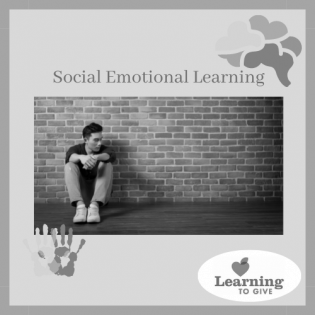SEL: Different Strokes for Different Folks
Keywords:
Self-Management
Social-Emotional Learning
YGFGinclusion
In this Socratic Seminar activity young people are asked to consider how their race, ethnicity, gender, abilities, or sexuality impact how they interact with others. This Self-Management tool asks young people to reflect upon how they regulate their behaviors and emotions. Different Strokes for Different Folks is inspired by the article, "Why We Can't Afford Whitewashed Social-Emotional Learning" by Dena Simmons.
SEL Connection:
- Self-Management: evaluate one's emotions, thoughts, and behaviors
- Social-Awareness: identify social norms, including unjust ones
- Relationship Skills: communicate effectively
Warm-Up
Note: Before facilitating this activity, talk to the school counselor or youth group director about emotions that may come up and how to help young people feel safe in this conversation.
- Discuss the meaning of the word privilege. We all have some privileges.
- Ask the group how they feel when someone gets a privilege that they don't get, such as getting away with something, taking a family vacation on school days, getting picked for a team, or bringing a nice lunch instead of eating school lunch. Talk about and name the emotions described.
- Acknowledge that those emotions are legitimate. We all feel emotions; emotions that arise help us understand a situation. Sometimes we act on them (yell, cry, laugh) and sometimes we name them and talk about them.
- Distribute the Different Strokes for Different Folks handout below. Ask participants to reflect and respond to each prompt on their own. There are no right or wrong answers. This survey shows how our perceptions may be different and raises awareness of various ways people are treated.
Activity Instructions
- Arrange chairs in a circle. Distribute the Socratic Seminar Guidelines (handout below).
- This video describes the Socratic Seminar procedures well.
- Read through and discuss the guidelines and procedures for the Socratic Seminar.
- Review the following Socratic Seminar Guidelines:
- Only one person may speak at a time
- Listen while others speak
- No raising hands
- Refer to the text
- Defend and support your point
- Attack the issue not the person
- Use the completed Different Strokes for Different Folks handouts as the text for the Socratic Seminar.
- Follow the procedures in the Socratic Seminar handout.
Whole Group Discussion Questions
- Ask an opening question, such as "What statement in here do you think will create the most diverse emotional reactions?"
- Read through the statements and discuss differences in perceptions and why people responded the way they did or differently than others. Talk about differences in the way people are treated and how that makes people feel. How can we channel anger into constructive dialogue and change?
- Allow the participants to lead the discussion.
- After the discussion, reflect on the text analysis and mechanics of the discussion. What could be improved for the next Socratic Seminar?
Self Reflection Writing Prompts
- What are some uncomfortable thoughts or feelings that arose during this activity?
- Did any of the prompts bring up strong feelings for you? Explain
- What surprised you about the responses from your peers?
- If you could change your response to one prompt which one would it be and why?
Wrap Up
Participants may rewrite one of the statements to show the strength of feelings, such as "When a woman expresses a strong emotion, listen carefully and learn."
Extension
- Suggested Reading for Facilitator Why We Can't Afford Whitewashed Social-Emotional Learning by Dena Simmons
